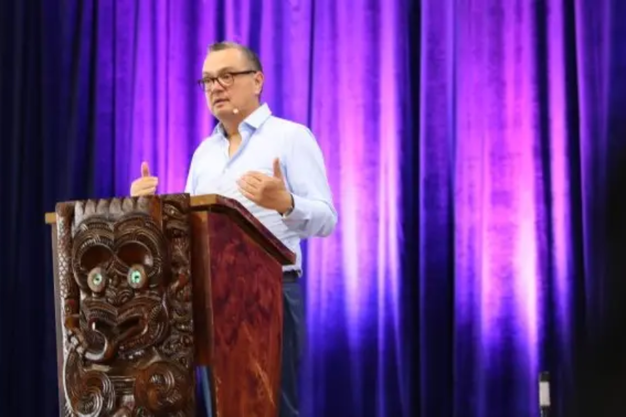Just days after filing for Chapter 11 bankruptcy protection, Plenty Unlimited Inc. has released a new blog post, offering a glimpse into the company's mindset as it navigates one of the most pivotal moments in its history.
In "Building a New Vision in Food & Fibre," CEO Arama Kukutai outlines a fresh path forward, one that is not just focused on technological innovation, but on sustainability, community partnerships, and rethinking the role of vertical farming in a rapidly evolving food system.
This vision comes at a critical time. Plenty could retreat from the spotlight and quietly focus on their bankruptcy case but instead the company seems to be doubling down on purpose-driven growth. Kukutai's blog reads less like damage control and more like a manifesto.
"In many ways, food and fibre have always been about place," Kukutai writes. "Our opportunity is to align technology with whenua (land) and the wisdom of those who have cared for it for generations." © PlentyPlenty CEO, Arama Kukutai
© PlentyPlenty CEO, Arama Kukutai
A new vision rooted in legacy
Kukutai's reflection draws heavily on his recent work with Māori iwi in Aotearoa (New Zealand), where Plenty has been developing long-term land use strategies in collaboration with indigenous leaders. The message is clear: sustainability isn't just about carbon credits or ESG boxes. It's about people, place, and partnership.
"Working with iwi on multi-generational development plans has reminded us of the importance of stewardship," he continues. "The future of food doesn't just require innovation; it requires reconnection."
This framing represents a notable pivot for a company once synonymous with flashy funding rounds and Silicon Valley ambition. While Plenty's past was defined by scale and spectacle, its present is focused on something quieter, but potentially more durable: trust.
Focus, not flash
Even as it restructures, Plenty will continue to operate its strawberry farm in Richmond, Virginia, and its plant science R&D facility in Laramie, Wyoming. Gone are the lofty expansion timelines and coast-to-coast supply chain dreams, replaced by a narrowed focus on high-value crops, particularly strawberries, and the deepening of science-led partnerships.
This more grounded strategy comes after investor confidence in vertical farming took a hit. Between 2022 and 2024, companies like AeroFarms, AppHarvest, and Kalera either filed for bankruptcy or exited major markets. Kukutai appears to acknowledge this recalibration: "We believe that fresh food grown close to where it's consumed remains one of the most powerful levers for health, resilience, and food sovereignty."
A broader reflection for CEA
Plenty's repositioning reflects a broader trend within CEA, away from vertical integration and rapid expansion, toward modular systems, local relevance, and better integration with energy, water, and data infrastructure.
Kukutai even points to high-tech agricultural clusters in places like the Netherlands as a model - spaces where tech, farming, and energy collaborate symbiotically. "Developing interconnected ecosystems where agriculture works hand in hand with energy providers and data centers is not only feasible; it's essential," he notes.
Can Plenty regain its footing?
Whether investors and the public will embrace Plenty's new tone remains to be seen. But this pivot, from capital-driven scaling to purpose-driven rebuilding, offers a narrative arc that many in agtech will be watching closely.
"We're at the end of one story, and the beginning of another," Kukutai writes. "Not one we planned, but one we're prepared for."
For more information:
Plenty
press@plenty.ag
www.plenty.ag
